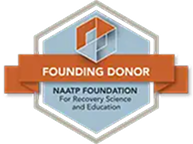The Addiction-Disordered Eating Connection

Substance use disorders don’t happen in a vacuum. Drug and alcohol addiction impact both physical and mental health. And someone dealing with a mental health issue may turn to drugs or alcohol as a way to self-medicate unwanted feelings or symptoms. When it comes to co-occurring disorders in women, another common dual diagnosis is eating disorders and substance abuse. Food and alcohol addiction often occur together, and drug use and disordered eating are a common pair. These co-occurring conditions impact treatment, and both need to be dealt with for a chance of successful long-term recovery. But just why is there so much overlap between disordered eating and addiction?
Eating Disorders and Substance Abuse — By the Numbers
Among those treated for SUDs, up to 35% were found to have an eating disorder, according to a National Alliance for Eating Disorders capstone study, a figure the National Eating Disorders Association (NEDA) confirms. That’s 11 times higher than the national average, and the numbers go higher when factoring in those dealing with disordered eating rather than a full-blown eating disorder. Another study shows that up to 50% of individuals with eating disorders (EDs) misuse alcohol or illicit drugs. And then there are the female eating disorder statistics. As many as 90% of ED cases are in females, according to a report by the National Institutes of Health.
Some of the common questions we hear around the topic include;
- Why are eating disorders more common in females? The reasons include everything from sociocultural pressures and biological influences to psychological risk factors and life stage triggers.
- Is an eating disorder considered an addiction? While eating disorders are not formally classified as addictions, they share many similarities, including compulsive behaviors, a connection to reward pathways in the brain, and a loss of control.
- What is the link between eating disorders and substance abuse? They share common risk factors (low self-esteem, trauma history, impulsivity, genetic predisposition), a desire to self-medication, and both conditions involve dysregulation of the brain’s reward systems and stress response pathways.
- How do eating disorders present in women struggling with addiction? Women dealing with both eating disorders and addiction can experience chaotic eating patterns, cross-triggering behaviors, amplified health risks, and treatment challenges.
Why They Co-occur in the First Place
The reality is that unhealthy behavior in one area may make someone more prone to engage in other unhealthy behaviors. For those with a substance use disorder, particularly women, disordered eating is common. Some may enter addiction treatment already aware they have a problem while others may only begin to recognize their disordered eating issues once they come to light during treatment for a substance use disorder (SUD).
Because we are seeing more female disordered eating issues in our SUD programs, Fellowship Hall has added a virtual therapist who specializes in disordered eating and is available to help address these issues for those who need it.
Addiction treatment is often compared to peeling an onion: There are seemingly endless layers, each uncovering new insights and discoveries. Someone in the throes of drug or alcohol addiction may not even recognize how disordered their eating has become until they are days or weeks into the treatment process. Only once one area begins to stabilize can you begin to pinpoint other issues that need to be addressed.
Eating Disorder Facts
Eating disorders are often misunderstood as being solely about food or body image. In reality, they are complex mental health conditions deeply intertwined with emotional pain, self-perception, and, in many cases, trauma, according to NEDA. Under the larger umbrella of eating disorders are several different conditions including anorexia nervosa, bulimia, and binge eating.
Social, psychological, and genetic mechanisms all contribute to the development of an eating disorder. Internal factors like a person’s perception of ideal body weight and individual temperament can play a role as well as outside factors like the media and peer interaction.
In addition to understanding what eating disorders are and how they develop, it’s important to understand what to look for to spot an eating disorder in a friend or loved one so they can get help.
Emotional and Behavioral Signs and Symptoms
- Preoccupation with weight loss, food, calories, and dieting
- Refuses to eat certain foods, and often eliminates whole food groups (carbohydrates, fats, etc.)
- Makes excuses to avoid mealtimes or situations involving food
- Develops food rituals (e.g., eating foods in certain orders, excessive chewing, rearranging food on a plate)
- Withdraws from friends and previously pleasurable activities and becomes more isolated and secretive
- Extreme concern with body size and shape
- Frequent checking in the mirror for perceived flaws in appearance
- Extreme mood swings
SOURCE: National Eating Disorder Association
When Does Disordered Eating Become an Eating Disorder?
Eating disorders are complex mental illnesses that are characterized by persistent disturbances in eating behaviors and impairment in psychological functioning. The difference between an eating disorder and the less serious disordered eating often comes down to the severity of the behaviors and the motivation driving them. Disordered eating patterns, even when severe, still do not meet the frequency, duration or psychological criteria for a diagnosable eating disorder.
The same issues that can drive an addiction can also be behind an eating disorder or disordered eating. Disordered eating behaviors often emerge as coping mechanisms: restricting food intake may provide a sense of control in an otherwise chaotic world, while binge eating or purging may offer temporary relief from emotional pain. Substance abuse can also be a way of attempting to cope — with unwanted feelings, depression, anxiety, or trauma.
Trauma, Addiction, and EDs
Scientists have found that trauma rewires the brain’s stress response system, disrupting appetite regulation, mood stability, and impulse control — all of which contribute to disordered eating patterns, NEDA explains. Some turn to drugs or alcohol to self-medicate unwanted feelings or past pain. Once they stop using, they have to deal with those feelings or find other ways to manage them.
While not all eating disorders stem from traumatic experiences, the intersection of the two is undeniable. Trauma can profoundly shape how someone relates to their body, emotions, and behaviors, creating a cycle that can feel impossible to escape.
So, what treatment options are effective for co-occurring disorders? Most comprehensive SUD or mental health treatment programs can effectively address both mental health issues and co-occurring substance use issues. They can also help with issues like disordered eating. But there are times with co-occurring treatment isn’t the right choice.
When is Eating Disorder Treatment Necessary?
Someone undergoing treatment for a substance use disorder who also has some disordered eating habits can usually get help for both issues successfully, but when disordered eating becomes a full-blown eating disorder, a program that specializes in eating disorder treatment is necessary. There they have medical professionals who are able to manage a patient with a dangerously low body mass index (BMI) and deal with the related medical needs that often accompany more serious ED cases. Some clinics even rely on tube feeding for dangerously underweight patients. At this point, treating the eating disorder has to take precedence. The patient doesn’t have the stamina to participate in any sort of SUD treatment, so those issues will need to wait to be addressed once they have regained some physical health.
Disordered Eating Support at Fellowship Hall
At Fellowship Hall, we recognize that healing from substance use disorders is rarely a linear path — and often, it brings to the surface co-occurring concerns that require specialized attention. That’s why we’ve added weekly sessions led by a therapist trained to address disordered eating and made it available to those in our residential SUD treatment program. This doesn’t replace the client’s existing two weekly sessions with their counselor, instead it’s in addition to that.
Of course, this isn’t for someone whose primary issue is an active eating disorder or who has a BMI of 17 or lower. But for those who need addiction treatment but also have some secondary disordered eating behaviors like purging, for example, this offers help for that during their existing SUD treatment program.
While our program remains firmly grounded in treating the substance use disorder as the primary diagnosis, we understand that disordered eating often emerges or intensifies when individuals begin their recovery journey. These weekly virtual support sessions with a licensed eating disorder therapist were added to enhance our existing treatment approach.
This added support allows us to remove what may have previously been a barrier to admission, offering clients the care they need to begin recovery from addiction while also receiving appropriate, parallel support for disordered eating behaviors. Once individuals complete their substance use treatment at Fellowship Hall, they are better positioned — both physically and emotionally — to engage in more intensive, specialized treatment for disordered eating.
If this program sounds like the right fit for you, please reach out to our admissions team now. We’re here and ready to help.
"*" indicates required fields
CONNECT WITH US
Our Admissions Staff Is Here to Help
Not sure if you or someone you love needs help? Call our Admissions Staff who can help you assess the next step at 336-553-6596."*" indicates required fields






